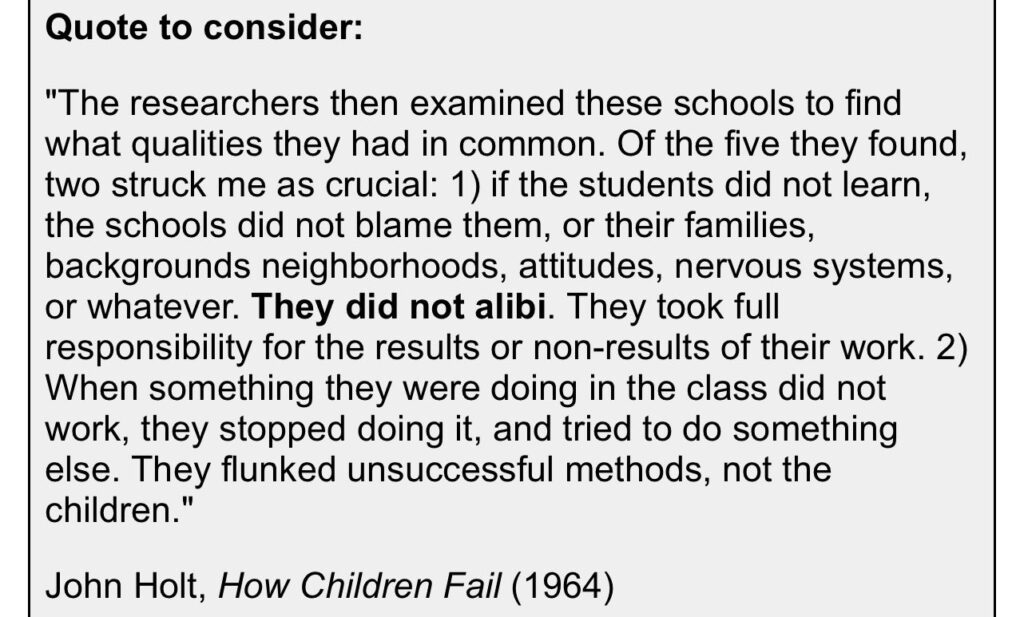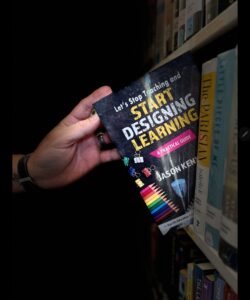The reason for this week’s post stems from something I heard an adult say recently. It is something I’ve heard many times before. And it only makes me wonder this, when will I ever stop hearing it? I am sure if you have spent any time in a school anywhere that you have heard this spoken in some way, shape or form. “These kids can’t […]”
I don’t know about you or your experience or your background, but this phrase coming out of an adult’s mouth makes me cringe, and at times, want to do worse. These kids can’t. What are you saying when you utter those words? There’s only one of three options.
Option 1: When you say “These kids can’t […]” you are stating your belief that they lack the ability to learn from you. You are saying that these kids are not capable. You are defeating them before they are given a chance. Your belief is that they are inferior to the kids who “can” and that no matter what you do, they will not learn. So, let’s flip the script. What if this was said about your child, your grandchild? What if it were said about you? “This teacher can’t […]” summed up the statement of your abilities in the classroom. Would you want this said or believed about you or someone you cared about? Would it make you want to try harder? Would it motivate you to excel?
Option 2: This relates to the reaction in Option 1 in that “These kids can’t” no matter what I choose to do. When you say these words, you might actually be deciding that you are giving up trying to get kids to where they “can.” You may be saying these words because you’re tired. I get that. Missed learning due to COVID, poverty, parental support, school mandates. There is SO much on our plates as teachers. At the end of the day though, if we utter “These kids can’t” and act on it by stopping our primary role in finding ways to support all learners so they can, we have lost our WHY behind what we do. Again, these kids are someone’s kids. If they were your kids or you, would you want the adults giving up on them?
Option 3: This is the least objectionable alternative translation to “These kids can’t.” Option 3 is by saying they can’t, what we are really saying is, “I don’t feel confident or don’t know HOW as a teacher.” Look, we have the hardest job there is. We all feel inadequate and unsuccessful at times. But, we can’t blame it on the kids. We have to step back, reflect and admit we need help. We are human. We have limits. We need help. There’s nothing wrong in admitting it. What do we do about it? We help each other. We learn. We share. We try. And we try again. That’s what we commit to do.
I’m sorry if this post gets under the skin. I wrote it without a warning to wear the steel-toed shoes. I just want us to realize that this education thing has never been about what kids can’t do. It’s about what they can do with the tools we give them. Our beliefs dictate our actions. We believe they can’t. We will act like they can’t. We will provide lower-levels of expectations and learning for them as a result.
We have to believe they can. Keep the standards held high. Design quality learning, building in the temporary, scaffoldings of support to get them to the expectation. We keep the bar where it is for all learners. We change our statement into, “These kids can when I provide […]” That’s the beginning of equity. It all starts with us. Our belief in them before we ever start class.


